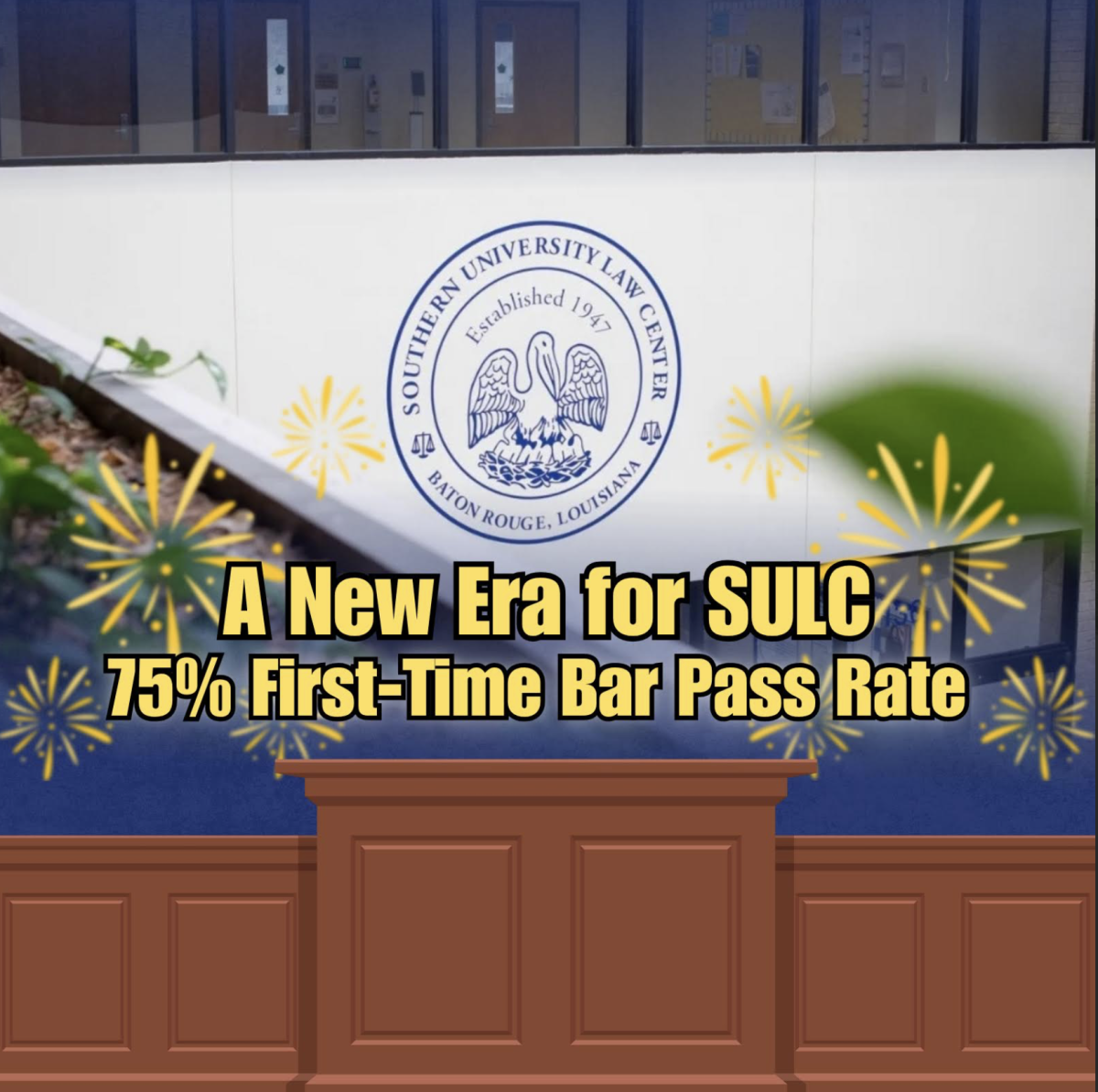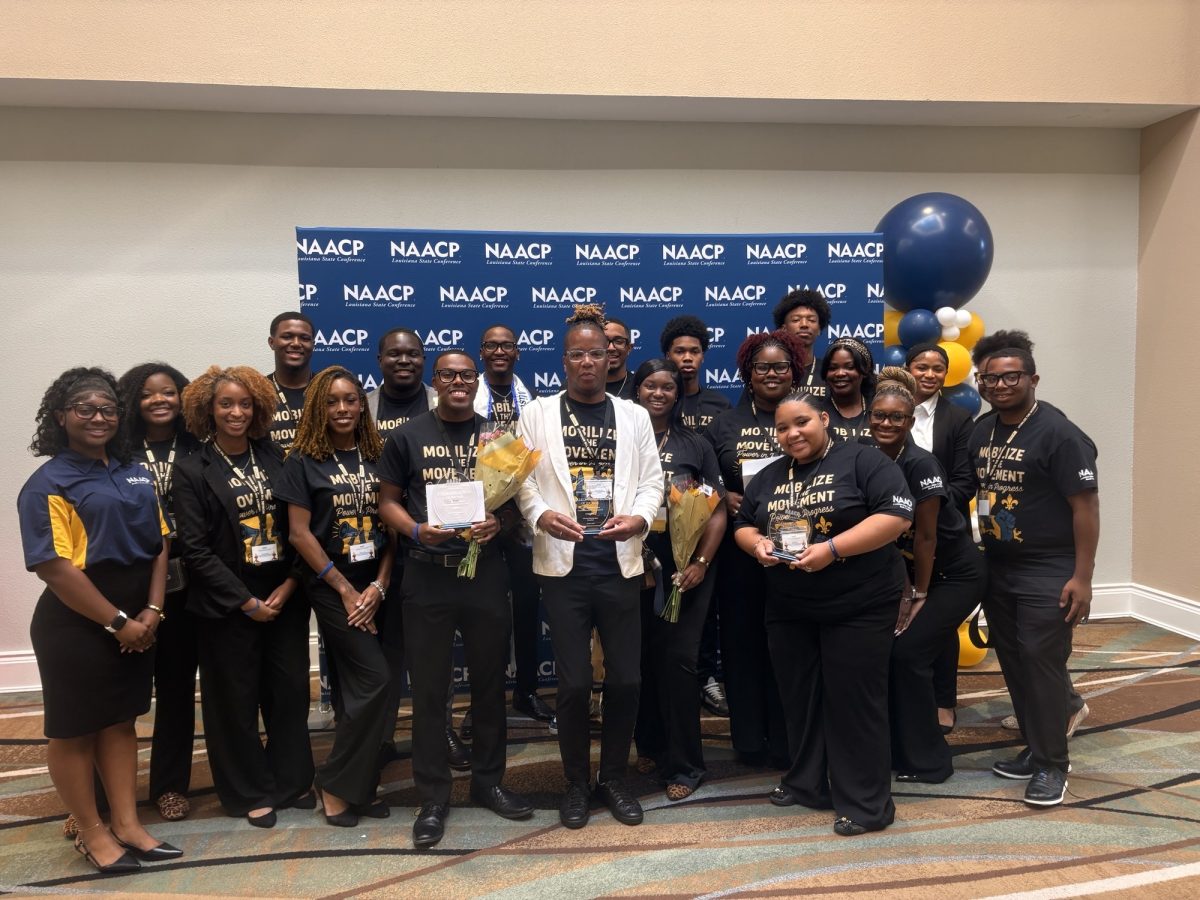The lack of availability of handicap structures and facilities on Southern University’s campus has become a concern to both the faculty and the students attending the university.
Disabled students attending the university must attend classes in buildings unsuitable for those students’; such as the T.T. Allain building that houses the math department, foreign language department, economics and finance department, computer science department and also the College of Business.
“Most of the classes I need for my degree are upstairs and I cannot get up there,” expressed Kayla Williams, marketing major and native of Baton Rouge who is confined to a wheelchair. “I miss the opportunity to meet people who are networking for jobs,” since most of the networking happens on the second floor.
The lack of resources to assist students in this building is apparent. Also the lack of resources for the building is illegal, punishable by severe fine(s); compiling fines may result in the closure of the agency in violation.
According to Section 504 of the U.S. Rehabilitation Act
-Nondiscrimination Under Federal Grants and Programs states: no otherwise qualified individual with a disability in the United States, as defined in section 7 (20), shall, solely by reason of her or his disability, be excluded from the participation in, be denied the benefits of, or be subjected to discrimination under any program or activity receiving Federal financial assistance o under any program or activity conducted by any Executive agency or by the United States Postal Service.
The act goes on to specify what types of agencies should be in accordance: (2) (A) a college, university, or other post-secondary institution, or a public system of higher education; or
Title 1 of the Americans with Disabilities Act of 1990 (ADA), specifies that government funded agencies should make existing facilities readily accessible to be usable by persons with disabilities; acquire or modify equipment or devices, adjusting modifying examinations, training materials, or pollicies, and providing qualified readers or interpreters.
“I could have chosen to go to any college, I have a 3.0 overall; I didn’t have to go to Southern, but I wanted to go because my mom went here and the history [of Southern],” said Williams. “I chose to go here to experience the HBCU life, and now I’m in a situation that nobody wants to do anything about: to help find a solution to get the ramps and elevators fixed.”
Attempts to contact administrative personnel for official statements were unsuccessful.
Williams has been experiencing this for two semesters.
“I’m getting the run-around, she explained; “I’ll give you a call back, they [administration] tell me; and they never do,” said Williams.
“Endas Vincent, director the Southern’s system facility planning, directed me to Eli Guillory, executive director for facility services, to get information on the accessibility of T.T. Allain.
Guillory insisted that Vincent was “lying;” and that he had absolutely nothing to do with the accommodation efforts of T.T. Allain, according o Williams.
Patricia Hebert, coordinator for the office of disability services said she would write a letter to the chancellor [before fall commencement], said Williams but there has been nothing done as a result of “the letter.”
This form of discrimination affects all students. Ray Dewey, a senior management major from Morgan City believes “Southern doesn’t accommodate those disabled students. As a result, “they have us stuck in the basement of T.T. Allain, uncomfortable and hot.
“I pay my fees like anybody else,” said Williams. “I wanted to see what the school wanted to do first, before I make it a public issue.”
Categories:
Students unhappy with campus handicap accessibility
April 22, 2008
0
More to Discover





